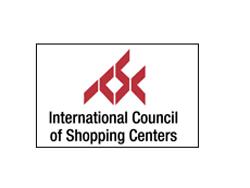ICSC: Congress May Look at Web Retailers Tax
- Home
- News
-
ICSC: Congress May Look at Web Retailers Tax
Washington, DC, April 2, 2007--The days of the Internet as a tax-free venue may be numbered, according to the International Council of Shopping Centers (ICSC). The association said that this spring Congress is expected to take up legislation that would enable the states to require online and catalog retailers to collect and remit sales taxes. This follows a long campaign spearheaded by ICSC and other groups to put such retailers on the same footing as physical stores.
Legally, most Internet and catalog sales are already subject to state sales tax. But Federal law holds that retailers are not required to collect it unless they have a physical presence in a particular state.
The lost revenues are substantial. In 2004 the Center for Business and Economic Research at the University of Tennessee estimated that even with conservative growth projections for Internet commerce, the states would lose in the aggregate about $18 billion in tax revenues under the present system in 2008 alone, and over $21 billion if e-commerce growth proves more robust.
Sen. Byron L. Dorgan, D-N.D., and Rep. William Delahunt, D-Mass., will probably introduce the legislation in their respective chambers. Similar bills in the last Congress failed to proceed, but things could turn out differently under this Democrat-controlled Congress, sources say.
“With a Democratically controlled Congress looking to help states pay for escalating costs of providing services and more states conforming with the Streamlined Sales Tax Use Agreement, it could be that the stars are beginning to align on this issue,” said Betsy Laird, senior vice president of global public policy for ICSC. “We may finally see a more even retail playing field putting online retailers in-line with brick and mortar stores.”
The Streamlined Sales and Use Tax Agreement, or SSUTA, as it is labeled for short, is a voluntarily pact among 21 full-member states to define taxable items and propose uniform tax rates for each item. It was formed to address objections that these varying taxes rates and structures are a burden on commerce. In all 45 states have a sales tax. But SSUTA member states still cannot obligate distant retailers to remit sales taxes. The goal of the Dorgan and Delahunt bills will be to grant them that authority.
“ICSC believes tax policy should be equitable for all forms of consumer purchases, whether they take place on Main Street, at shopping centers, via mail order or over the Internet,” Laird said. “Internet retailers should not receive a tax advantage at the expense of traditional retailers and state and local governments. We are excited at the prospect of addressing this long-standing issue in the 110th Congress.”
